We’ve Got a Gal from Kalamazoo: It’s a Polly Horvath Q&A and Cover Reveal for Library Girl!
Y’all already know Polly Horvath, right? Children’s author. Creator of Everything on a Waffle (a Newbery Honor Book), The Trolls (a National Book Award Finalist), and The Canning Season (winner of the National Book Award). The Canning Season, for the record, may be notable as one of the few middle grade novels out there to use the f-word with some incredible frequency. You probably won’t be seeing that particular turn of phrase in her latest middle grade novel, Library Girl, however. After all, it’s got a plot that is tailor made for … well, just take a look at it:
“After living in the public library for the last eleven years, Essie must learn to adapt to a world that’s not as perfect as the stories she’s grown up with in this heartfelt middle grade novel from Newbery Honor author Polly Horvath. Essie has grown up in the public library, raised in secret by the four librarians who found her abandoned as a baby in the children’s department. With four mothers and miles of books to read, Essie has always been very happy living there. But now that she is eleven, Essie longs for a little more freedom . . . and maybe a friend her own age. She seems to get her wish when her moms let her go by herself to the mall. On her second trip there, she meets G.E., a mysterious boy who looks so much like her she can’t help but think they may be twins. Maybe he was raised by four dads in the appliance section of the department store. Maybe his story is intertwined with hers, and their happy ending is as one big family. But as she gets to know G.E. better, she learns that nothing is as simple as it seems in her stories—not even her own past. With her signature warmth and offbeat humor, Newbery Honor author Polly Horvath invites book lovers to sit back in their own library nooks and check out a whimsical adventure perfect for readers trying to find their place in the world.”
See what I mean? And a book with a plot like that is deserving of an interview like this. Plus, it’s always a pleasure to hear someone talk about our mutual hometown of Kalamazoo, Michigan. So let’s get to it, shall we?
ADVERTISEMENT
ADVERTISEMENT
Betsy Bird: Polly! Thank you so much for talking with me today. Let’s just start with the basics. Where did LIBRARY GIRL come from and how did you initially come up with it?
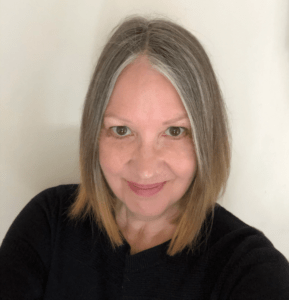
Polly Horvath: Betsy! Thank you for having me. Writing is a mystery. You take something from the dark outreaches of your mind and bring it into the light. Library Girl is a story about families, books, reading and libraries. It is also about how all our stories are individual, unique and important. It’s a story with a lot of twists and turns, secrets and surprises. And it is the only book I have ever set in Kalamazoo, Michigan where I grew up. There’s always something behind a book that is its motor driving it forward. Yes, this is a book about libraries but I think I was also trying to work out how we deal with the world and all its mad occupants. Essie chooses a life in books because in books she hopes to understand more than she could alone what makes people do the things they do. We can all only experience one life but with books we can jump into someone else’s experiences and perspective and conclusions and this can be helpful.
BB: Give us a bit of insight into your process. Folks often separate themselves into Pantsers (folks who write by the seat of their pants, making stuff up as they go along) and Planners (people who work out every detail beforehand). Which category would you say you fall into?
Polly: For most of the books I have written I have been a Pantser. I like the quote by E.L. Doctorow. “Writing is like driving at night in the fog. You can only see as far as your headlights, but you can make the whole trip that way.” When a book starts for me, it keeps insistently tapping on my brain. I get bits and pieces that won’t connect for a while. Even if I have to walk away from the book because life gets in the way, it will be there when I finally sit down to work on it. Sometimes I will go back after a book has been published for a few years and suddenly see how all the bits and pieces which seemed random at the time, were all important and connected. The conscious mind is surprised by what the subconscious mind knew it was doing all along.
BB: When I was a child, the very first author visit I ever witnessed was by Betty Horvath in my elementary school (in Parchment, Michigan, no less). And if I do not miss my guess, I do believe that you’re her kid. You grew up with a children’s book author for a mom, then went on to a similar occupation. Did you always just assume that you’d do the same thing with your life, or did it come as a surprise to you? [For the record, my mom worked at the Athena Bookstore for years, and we had a large number of copies of AN OCCASIONAL COW signed, by you, to give to various cousins at any given time].
Polly: I remember the Athena Bookstore and hanging out there and buying some beautiful old books. As a child I loved walking down the stairs to the little basement entrance. In fact, when I was done writing Library Girl, I was sorry I hadn’t included it somehow in the story because it was on one of the blocks that faced the park that was central to the story. You and I probably have very similar Kalamazoo book memories.
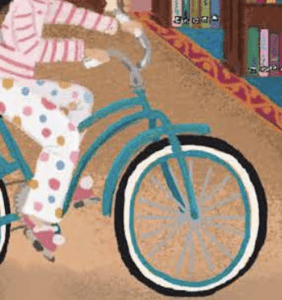
I will never know how much my mother’s writing experience had to do with me becoming a writer. I suspect very little. I remember distinctly writing my first story when I was in the second grade and printing it. And then asking my mother to send it to a publisher. I wanted her to type it up neatly and correct any spelling errors and was horrified when she thought it would be cute to send it as it was. I was really very angry because I took this seriously and the idea of being cute was offensive. Although the writing part came deep from within and was something I doubt she or anyone else could have given me, what my mother gave me was a grounding in the business of publishing. That came in useful.
BB: Since this is a story about a child raised in a library, were you a self-identified library kid yourself growing up?
Polly: When I began writing Library Girl, all my library memories came rushing back. The main character, Essie, grows up in a library and I did as well, at least, metaphorically. My mother took us to the library every Saturday from the time we could toddle. When I was about ten, I started to take the bus to the library alone, to bring back an armful of books. Anne Lamott talks about the people in your life who sustain you and put you back together as being your pit crew. The weekly armful of books was my pit crew.
But the whole of the library fascinated me. It was like a small world of its own. I loved the little bathroom in the children’s room. I was wildly curious about the librarian’s office. Storytime was a big deal – the idea that you could sit down and someone would take out a picture book and read it to you! My mother read to us for years but this was someone else’s voice. A book that my mother had read to us sounded completely different with someone else’s inflections.
ADVERTISEMENT
ADVERTISEMENT
I loved make-believe and one of the things I made-believe was that I was different characters. When I was eleven, I had the brilliant idea of getting each of these characters her own library card. I ended up with a stack of real library cards under fake names and I used them all. All of this, this sort of melding of the real and the fictional – what might otherwise be called a psychotic break (LOL) – was the start of writing novels.
BB: Was there anything that got cut from the final version of this book that you were fond of?
Polly: No, all of the sections I’m fondest of remained intact.
BB: Excellent. Finally, what are you working on next?
Polly: I’m working on a new middle grade novel. That’s as much as I ever tell anyone. Like many writers, I find if you talk about what you’re working on, the magic leaks out and you can’t write the book.
All right. It’s the moment of the hour, folks. That time when I can reveal to you the cover of Ms. Horvath’s latest. Hold onto your butts cause here we go . . .
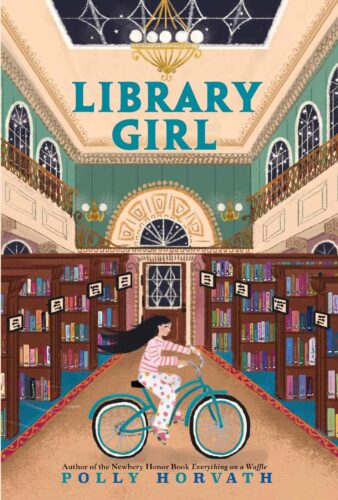
That cover illustration you see before you is by Joy LaForme, and the cover design is by Kerry Martin. Many thanks to Polly for taking time out of her day to answer my questions, and thanks too to Sara DiSalvo and all the folks at Holiday House for granting me the chance to debut this book jacket and talk to Polly. Library Girl is on sale September 10th so be sure to pre-order your copies today!
Filed under: Cover Reveal, Interviews
About Betsy Bird
Betsy Bird is currently the Collection Development Manager of the Evanston Public Library system and a former Materials Specialist for New York Public Library. She has served on Newbery, written for Horn Book, and has done other lovely little things that she'd love to tell you about but that she's sure you'd find more interesting to hear of in person. Her opinions are her own and do not reflect those of EPL, SLJ, or any of the other acronyms you might be able to name. Follow her on Twitter: @fuseeight.
ADVERTISEMENT
ADVERTISEMENT
SLJ Blog Network
2024 Books from Printz Winners
Exclusive: Vol. 2 of The Weirn Books Is Coming in October | News
Fighting Public School Book Bans with the Civil Rights Act
North Texas Teen Book Festival 2024 Recap
ADVERTISEMENT



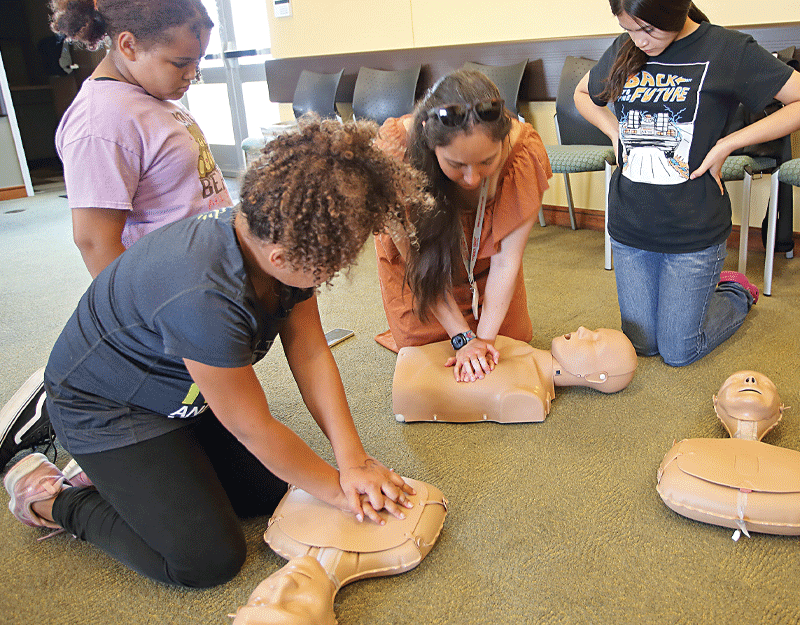


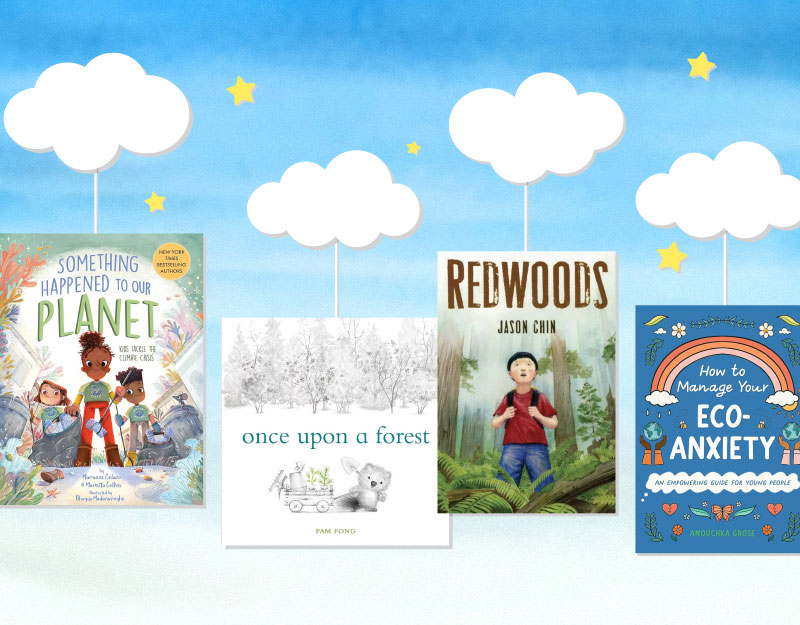
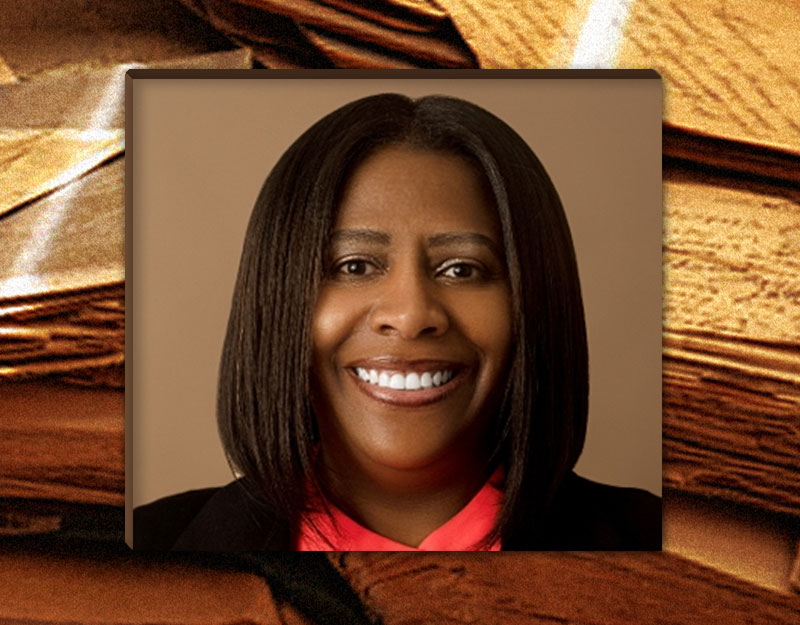
This one looks like a lot of fun. Entered in my date book for September 10th.